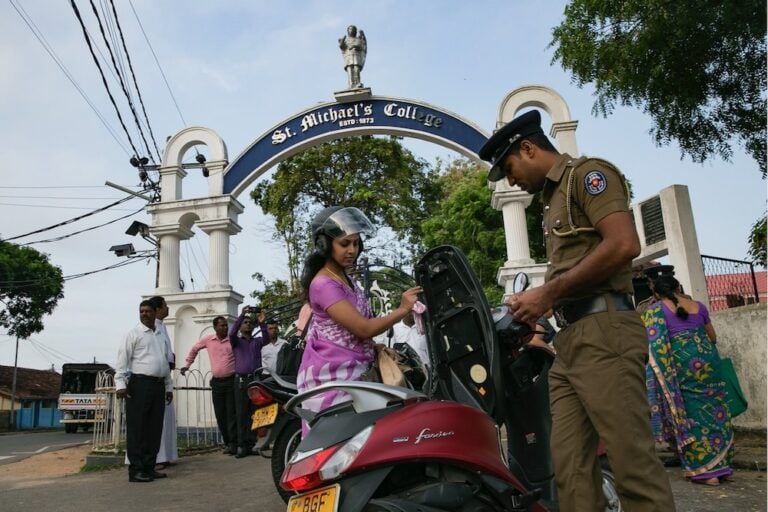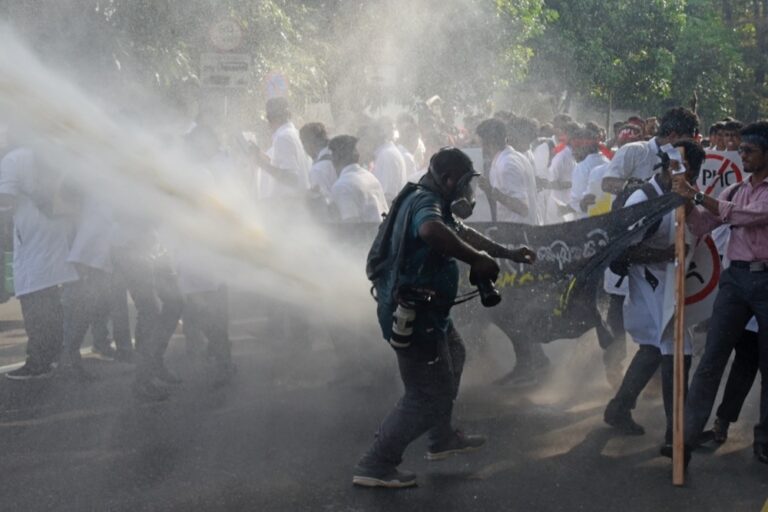Parties and candidates participating in January 2010 elections must make press freedom and the protection of journalists a priority, says RSF.
(RSF/IFEX) – The political parties and candidates participating in January 2010 elections must make press freedom and the protection of journalists a priority, Reporters Without Borders said after a group of state TV journalists were roughed up while covering an opposition meeting during the weekend.
“These elections are crucial for the country’s future, but they will not be considered democratic if there is no press freedom,” Reporters Without Borders said. “The government and opposition must, as a matter of urgency, undertake to guarantee that all media, regardless of their editorial line, will be free to go anywhere and interview whomever they want.
“The state-owned print media and TV stations must also provide balanced coverage, which is definitely not the case at the moment. By forcing the government media to campaign against the opposition, the president is putting journalists in danger, because they are being associated with him and his allies.
“The continuing ban on media visits to the north and the violence against state TV journalists at a meeting held by the opposition United National Party bode ill for the climate in which these elections will take place,” Reporters Without Borders warned.
Seven journalists working for state TV stations Rupavahini and ITN were slightly injured and their equipment was damaged when they were manhandled outside the location where the UNP had been holding a convention in Colombo on 5 December. UNP parliamentarian Ravi Karunanayake told Reporters Without Borders his party was not involved in the violence. At the same time, he confirmed that the journalists had not been invited to the meeting.
“As long as the state media continue to give a biased account of our activities, we will not invite them,” Karunanayake said. “We provided accreditation to about 100 journalists for this event and no one complained of any violence.” The opposition has even accused the government of orchestrating the incident for political purposes.
Reporters Without Borders added: “Opposition supporters may well be exasperated by the state media’s extremely biased coverage of political developments, but this kind of violence undermines their message.”
Media and information minister Anura Priyadharshana Yapa called a news conference to express the government’s “anger” about the incident, which the police are investigating. His condemnation came just days after the government extended a ban on media visits to the north of the country, where tens of thousands of Tamil civilians have just been allowed to leave detention camps.
The three main Tamil dailies in Jaffna received threatening letters on 24 November accusing them of playing into the hands of the “terrorists.”
The Tamil journalist J.S. Tissainayagam must also be released before the elections, as there was no hard evidence to support his conviction and his detention therefore threatens the freedom of expression of all Tamil journalists.


